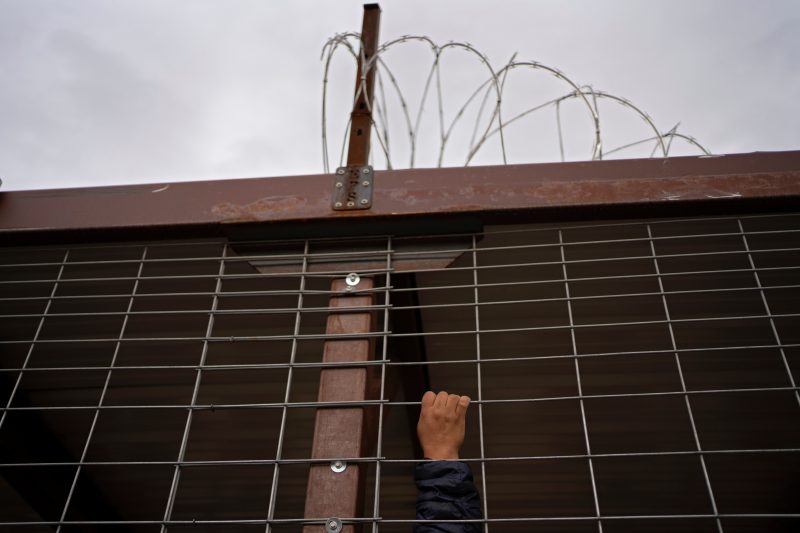Harsh deportation tools are just fine with many Americans

For months, former president Donald Trump and his allies have previewed a plan for mass deportations of millions of undocumented immigrants. And through it all, the Biden campaign has increasingly sought to elevate their comments, apparently believing that the plan is at odds with the American people and voters.
“Trump’s America in 2025: Mass Deportations,” read a February news release from the Biden campaign.
It might be an effective strategy — but perhaps not as effective as it once might have been.
Polls for months have shown Americans adopting blunter and harsher views on illegal immigration, coinciding with a prolonged crisis at the southern border. For instance, Trump’s signature proposal for a border wall has gone from being supported by fewer than 4 in 10 Americans during his presidency to a majority in most recent polls. Those are the highest numbers ever for a border wall or fence, going back three decades.
Such also appears to be the case with efforts to deport undocumented immigrants — and some of the harsh methods that would entail, like using troops and even detention camps.
It’s not evident that Americans would support Trump’s making good on such a plan and all its particulars, but they appear at least split on the broad strokes of it.
A February CNN poll tested a number of Trump proposals that might seem extreme or unpopular. The plan to “detain and deport millions of undocumented immigrants” was broached alongside Trump’s jailing his political opponents, pardoning himself and pardoning Jan. 6 defendants.
But unlike the other proposals, the deportation plan earned the support of nearly half of Americans: 48 percent.
Other surveys bear out this sentiment:
A January poll from USA Today and Suffolk University found that Americans supported a plan to “send troops to the southern border and order the mass deportation of illegal immigrants,” 53 percent to 43 percent.A February Economist-YouGov poll found that Americans supported “using military troops to arrest and deport people who are in the U.S. unlawfully,” 56 percent to 31 percent.Perhaps most striking, Americans are remarkably open to another severe tool Trump and his allies have floated: detention camps. A January Reuters-Ipsos poll asked whether undocumented immigrants “should be arrested and put in detention camps while awaiting deportation hearings.” Fully 42 percent supported this, while 41 percent opposed it.
There are valid questions about how much these poll queries align with Trump’s proposals. We don’t have much data yet on detention camps, for instance. And how do you define “mass deportation”? Is it virtually every undocumented immigrant — estimates place the number in the country at about 11 million — as some Trump allies have said is the plan? Americans could certainly like the idea of deporting lots more people without embracing the full breadth of the draconian tools that would be required.
But these polls suggest remarkable surface-level support for the main tools. The Washington Post’s headline in February read, “Trump and allies planning militarized mass deportations, detention camps.” Americans appear to be at least about evenly split on each of those three elements: mass deportation, using the military and detention camps.
That doesn’t mean it will always be thus. Americans seem to be of two minds on this, as they often are. And there’s reason to believe that driving home the scale of such an effort could cause many to blanch.
That same CNN poll showing that 48 percent supported millions of deportations, for instance, also gave people a choice between allowing such immigrants a path to legal status and deporting “all” of them. The former was preferred more than 2 to 1, 68 percent to 31 percent.
Those numbers echoed an August Public Religion Research Institute poll, which showed that Americans preferred a path to citizenship or legal status over deportation by nearly 3 to 1.
All of which suggests that the Biden campaign could get the messaging right by emphasizing just how many people — people whom large majorities of Americans say should have a shot at legal status — could be caught up in such an effort. Pointing to exactly what it would mean to employ troops and detention camps would also seem fertile political ground, given how ugly those scenes could get. It’s unlikely that poll respondents have truly reckoned with what such an effort would mean, and the fraught historical precedents.
But for now, attaching “mass deportation” to Trump’s brand doesn’t seem like a distinct negative.




